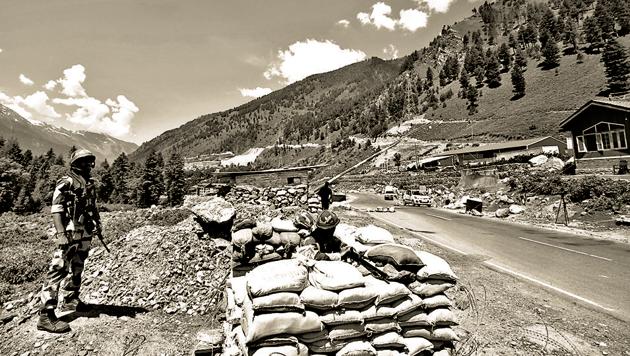Don’t give the military total freedom | Opinion
This is an abdication of political responsibility and opens the doors to future crises in conflicts
The violent skirmishes between India and China in eastern Ladakh have been disturbing. Some of the reactions from Indian leaders have also been disturbing. In a civilian democracy, where the armed forces operate under the direction of the political leadership, to announce as the prime minister and defence minister have done, that “the forces have been given complete freedom to take necessary action” is an abdication of political responsibility and opens the door to future crises in the India-China relations and in other possible conflict situations.

It is also not fair to thrust this responsibility on to the armed forces. Matters relating to war and peace are for the political leadership to decide on. Yes, once the leadership has decided that a military riposte is called for to counter a serious threat to the nation’s security, the armed forces must be given discretion in operational matters. They must act to defend our borders, but while actions at the local level and of limited scale and duration may be handled and resolved by them, any incident that goes beyond a certain threshold, with larger political and security implications, must be subject to careful assessment within the national security system and the political leadership before a military response is considered.
The possibility of escalation is not just a military matter. It could have much wider ramifications, particularly if the adversary is a nuclear weapon-state just as India is. Such serious incidents cannot just be handled at the local, on-the-spot military level. The diplomatic machinery must be activated without delay and in serious instances, such as the Doklam face-off in 2017, a summit-level intervention, even, may be necessary.
We have as many as four bilateral agreements with China on maintaining peace and tranquillity at the India-China border. These were concluded in 1993, 1996, 2005 and 2013, over a period of 20 years. These are valuable agreements with important provisions to ensure peace and tranquillity, and should not be unilaterally jettisoned or altered in an angry reaction to what happened in the Galwan Valley. They have, by and large, kept the peace at India’s borders for the past several decades. That is an important achievement which should not be minimised.
The use of arms by Indian forces when engaging with Chinese counterparts will inevitably lead to similar action by the latter. If we give the country’s security forces the discretion to use firearms in an angry encounter, a bloodbath much worse than that which took place at Galwan could ensue. The consequences of such an incident would not just be military. It would reverberate right up the domestic political and diplomatic space. India’s effort should be to ensure that China remains committed to these important agreements and see how they can be strengthened.
Even in the present case, it is not clear why the skirmishes which took place at various points were not raised to the diplomatic and higher political level. The series of incidents at multiple points and the earlier violence witnessed at the Pangong Lake area should have been a warning enough that the country was dealing with a new situation on the border. As a result of the violence in some of these encounters, we should have been aware of heightened emotions and anger among the Indian forces as also among the Chinese. The possibility of such anger leading to more violent clashes should have been anticipated and diplomatic engagement should have been intensified. It should have been raised to the level of the national security adviser and the external affairs minister. This would have also been helpful in reading Chinese calculations. If this was done, then it has not been put out in the public domain.
The agreements arrived at in 1996 and 2005 committed the two sides to engage in a clarification of the Line of Actual Control (LAC). We know where LAC lies and India’s activities are confined to the area within LAC. China contests this alignment at some locations but we do not know how China perceives LAC in its entire length. Both sides have agreed that clarifying LAC is essential to assuring peace and tranquillity at the border, pending the settlement of the border question. The Galwan incident offers an opportunity for us to engage China on this agreed exercise and implement it expeditiously. China’s reaction will also demonstrate whether it is really interested in maintaining peace on the border or whether it prefers to keep it ambiguous so that it can unilaterally advance its territorial claims at points and time of its choosing. This will enable us to draw the necessary conclusions and respond accordingly.
There is no doubt that India’s relations with China have become more adversarial. The string of incidents at the border is a symptom of that, as is the mounting evidence of Chinese activism in India’s subcontinental neighbourhood. The Indian government’s response has to be a careful mix of political, diplomatic, economic and military measures. Engagement with China must continue but its terms must reflect the changed context. Now, more than ever, we need to step back and reconsider our national strategy in all its dimensions. India has left that on the shelf for far too long.



